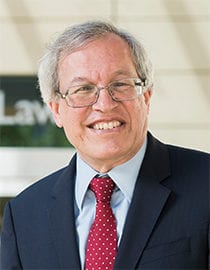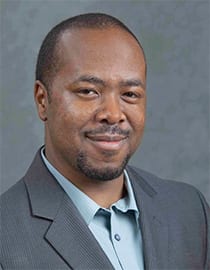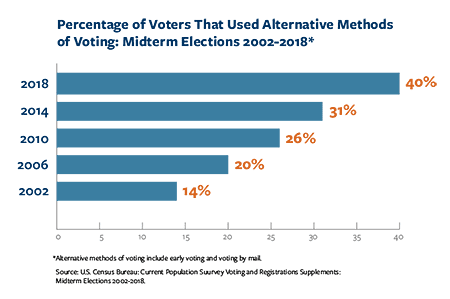By Andrew Cohen
Just 2½ months ago, current hot-button questions about the upcoming election seemed unthinkable: Will in-person voting be drastically deterred by the health risks involved? With party conventions or large public events unlikely ahead of the election, will social media essentially determine the next president? Will there even be an election in November?

Berkeley Law Dean Erwin Chemerinsky and Professor Bertrall Ross were among five university faculty members who tackled such topics during a recent Berkeley Conversations: COVID-19 discussion about how the crisis may impact the election. They discussed several ways the pandemic could move the needle, and agreed that the potential impact figures to be profound.
“Will the November 2020 election be conducted in a way that facilitates people being able to vote in a manner consistent with public health?” Chemerinsky said. “I’m very worried about whether or not we’re going to have the ability of people to all get to the polls or have absentee ballots available in a way that they can all be counted.”
Ross, who teaches Election Law, voiced his concern about how the crisis will shape the ability of African Americans and other racial and ethnic minorities to cast their ballots.

“We’ve seen how COVID-19 has had a disparate impact on minority communities in terms of hospitalizations and death rates,” he said. “This is going to stoke some fear in these communities, especially if they feel that voting will compromise their health in some way.”
The pandemic recently prompted Poland to postpone its election four days before it was scheduled. If projections of a new and possibly more dangerous wave of COVID-19 this fall hold true, could the same thing happen in the U.S.? Chemerinsky highly doubts it—regardless of where President Trump finds himself in the polls near Election Day.
A renowned constitutional scholar, Chemerinsky cited the 20th Amendment, which states that the president’s term ends at noon on Jan. 20—and that if an election is not held, the speaker of the house takes office. Given that the current speaker is Rep. Nancy Pelosi, a California Democrat and Trump nemesis, “I think that by itself will ensure that there’s an election,” Chemerinsky said.
Although the timing of elections is set by Congress, which could conceivably change the statute and alter the date, Chemerinsky sees that as highly unlikely.
“We’ve had the Civil War, two world wars, the Spanish flu, and always the election was held on schedule,” he said. “It’s unthinkable, even if the pandemic flares up again in the fall, that there won’t be an election held in November.”
Voting by mail
Many advocates are pushing for a rapid expansion of vote-by-mail given the possibility of COVID-19 still posing health concerns come November. A recent USA Today and Suffolk University survey found that 65 percent of Americans support this alternative.
Chemerinsky said scenes from the April 7 Wisconsin primary, where people stood outside for hours wearing masks to vote amid a hugely reduced number of polling stations, will likely “increase pressure to transition to a vote-by-mail system.” But given the huge variation of vote-by-mail rules among states, and the major fiscal and structural requirements to create a uniform national system, he and the other panelists doubt it could be achieved by November.

All-mail elections may be ideal for many, but all states don’t seem to have the will to implement them, Ross said. Even if they could, he noted, the issue of disparate impact remains concerning. About 25 percent of Americans voted by mail in 2016, but only 17.8 percent of African Americans did.
“Part of the reason is a lack of trust that their vote will be counted through that mechanism,” Ross explained. “There’s also a tradition and history of these voters voting in person after being deprived of the vote in so many parts of the country for so long.”
With the pandemic forcing greater reliance on social media in the current campaign, Ross also expressed concern about those implications.
“It’s easier to mislead voters about if they’re eligible to vote, when the election is, and other things that have disenfranchising effects,” he said. “It’s easier to proliferate that information through social media and that could result in another disproportionate impact on minorities.”
With some states trying to remove people from their voter rolls, others requiring stricter photo ID standards, and others tweaking their voting procedures in response to COVID-19, Chemerinsky anticipates some volatile post-election activity.
“I expect a lot of litigation to go on, but what role courts will play will be uncertain,” he said. “There are so many scenarios that could lead to litigation. I expect this is going to be a very close election, which means small things can make an enormous difference.”
Ross noted that the pandemic, resulting economic crisis, and potential for civil unrest could fuel ways in which the election is viewed as illegitimate. He said barriers to turnout, vote-counting concerns, and more mail-in ballots requiring added time needed to tabulate results means the election “could represent the greatest existential threat to our republic in terms of elections that we’ve had.”